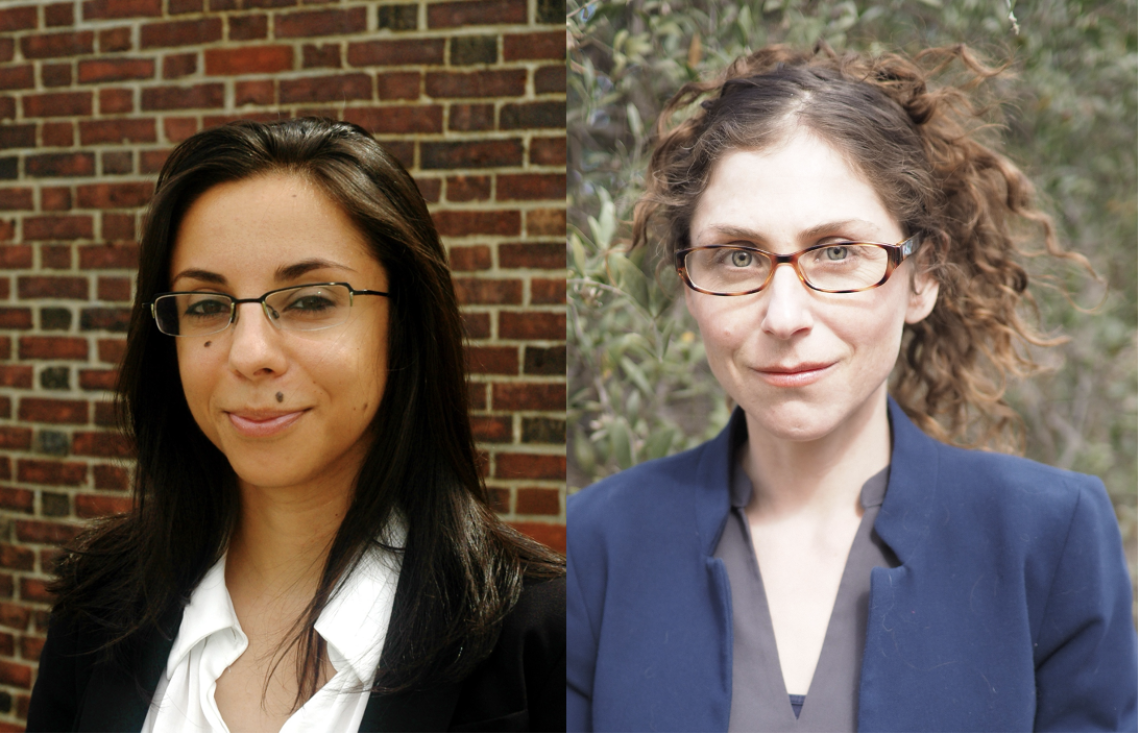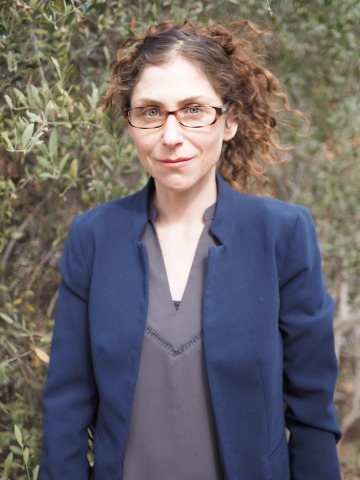Highest Presidential Honor Bestowed on Steward Observatory Astronomers, Highlighting the Department’s Preeminence in Theory, Data and Computation

Steward Observatory professors Gurtina Besla and Kaitlin Kratter are among this year’s PECASE recipients honored this January for their cutting-edge astronomy research in galaxy evolution and star and planetary formation, respectively.
Earlier this month, Steward Observatory professors Gurtina Besla and Kaitlin Kratter both received the Presidential Early Career Award for Scientists and Engineers (PECASE)—they are two of only 400 scientists and engineers across the nation honored by former President Biden for their innovative research. U of A was notably well-represented on the awardee list this year: Paloma Beamer, professor at the U of A College of Public Health, received a PECASE as well. PECASE is the highest honor bestowed by the U.S. government on outstanding scientists and engineers early in their careers. "Each of us is nominated in recognition of both the excellent work that has already been done, and our great potential for future excellence” said associate professor of astronomy Erika Hamden, who also won a PECASE in 2019. “This is a huge honor, and the small pool of people that can be considered for it is very exclusive."

Astronomy Professor Gurtina Besla
Dr. Gurtina Besla, a professor in the Department of Astronomy and an astronomer at Steward Observatory, was recognized for her groundbreaking work in theoretical astrophysics. Her research, supported by the National Science Foundation (NSF) CAREER award, delves into the evolution of the Milky Way and its satellite galaxies, advancing our understanding of galaxy evolution and the properties of dark matter. Dr Besla is also the director of the TIMESTEP undergraduate professional development program and the MESCIT math tutoring program for Native American scholars.

Astronomy Professor Kaitlin Kratter
Dr. Kaitlin Kratter—a professor in the Department of Astronomy, astronomer at Steward Observatory and affiliate of the Graduate Interdisciplinary Program in Applied Mathematics—was celebrated for her innovative theoretical studies of star and planet formation. Her work, supported by NASA, leverages large scale numerical simulations to help explain the origin of the diverse populations of multi-star systems and exoplanets in our galaxy.
For U of A, the awards this year reflect the strength of our top-performing faculty in theory, data and computation. Both Besla and Kratter are world-class astronomy theorists, with research specialties that reflect the breadth of research currently unfolding at Steward Observatory. Besla’s work centers on dark matter physics, galaxy evolution, and dynamics—in particular, taking advantage of precision data to make highly detailed models of nearby galaxies to test dark matter physics and to learn more about our own Milky Way Galaxy. Kratter’s work focuses on the formation of individual stars and planets—exploring why some stars have planets and others don’t, and developing an understanding of exoplanets that may someday help us answer the question: “are we alone in the Universe?” Where Besla’s research puts the Milky Way in context with neighboring galaxies, Kratter’s work puts our solar system in context with other stars and planetary systems.
Their research focuses on distinct areas and scales, and for both professors to be honored with this year’s PECASE is a testament to Steward Observatory’s strength across all areas of theory and high performance computing. “Steward Observatory is often celebrated for its prowess in instrumentation and observation, but it has also been dramatically successful in bringing in highly competitive federal funding for theoretical research,” said Besla of this year’s PECASE recipients as well as the long line of other decorated theorists at Steward Observatory, including Peter Behroozi, Tim Eifler and Elisabeth Krause. “Our achievements would not be possible without the University’s support for local high performance computing facilities,” said Kratter.
Established by President Clinton in 1996, PECASE recognizes scientists and engineers who show exceptional potential for leadership early in their research careers. The award recognizes innovative and far-reaching developments in science and technology, expands awareness of careers in science and engineering, recognizes the scientific missions of participating agencies, enhances connections between research and impacts on society, and highlights the importance of science and technology for our nation’s future.
From Day One of his Administration, former President Biden has recognized the important role that science and technology plays in creating a better society. He made historic progress, increasing federally funded research and development and deploying past research and development at an unprecedented scale through the Bipartisan Infrastructure Law, the Inflation Reduction Act, and the CHIPS and Science Act.
“Gurtina Besla and Kaitlin Kratter’s colleagues at Steward Observatory/Astronomy have long known that they are shining stars in our community,” said Buell Jannuzi, Head of the Department of Astronomy and Director of Steward Observatory. “It is wonderful to see them receive this national recognition of their accomplishments and potential for the future.”
Read more about this year's presidential award recipients on UA News

